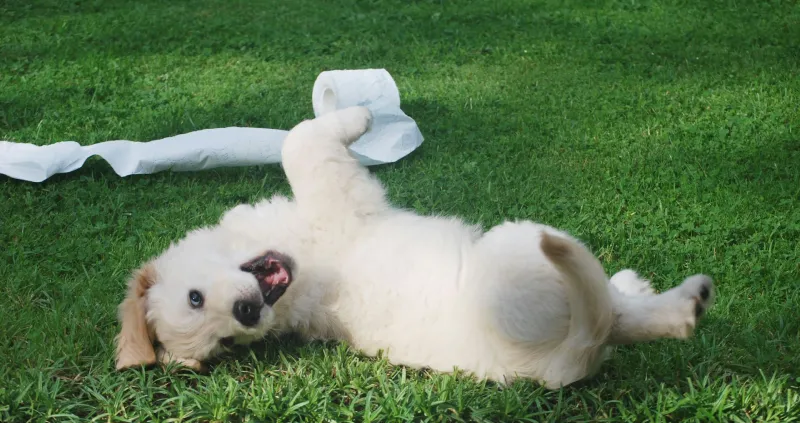How to Stop a Puppy Biting: 10 Effective Tips
Puppies are full of energy and curiosity, and biting is a natural part of their development. However, it’s important to teach them early on that biting isn’t acceptable behaviour. If you’re wondering how to stop a puppy biting, these 10 tips will help guide you in the right direction.
1. Understand Why Puppies Bite
Before tackling the issue, it’s helpful to understand why puppies bite. Puppies explore their world with their mouths, and biting is often part of play or teething. Recognising this can help you address the behaviour with patience.
2. Start Training Early
The earlier you start teaching your puppy not to bite, the easier it will be to correct the behaviour. Consistency and repetition are key. Establishing boundaries from a young age will help your puppy learn what is acceptable and what isn’t.
3. Use a Firm ‘No’
When your puppy bites, respond with a firm “No!” This helps them associate biting with negative feedback. Avoid shouting, as this might scare your puppy. Instead, use a calm but assertive tone to show that biting is not allowed.
4. Redirect to Toys
One of the most effective ways to stop a puppy biting is by providing a suitable alternative. Keep chew toys handy and redirect your puppy’s attention to them whenever they start to bite. This helps satisfy their natural urge to chew without hurting anyone.
5. Teach Bite Inhibition
Puppies learn bite inhibition naturally from their littermates, but you can reinforce this at home. If your puppy bites too hard, let out a yelp or say “Ouch!” and withdraw your attention briefly. This mimics the behaviour of other puppies and helps them understand when they’re being too rough.
6. Avoid Rough Play
While it might be tempting to engage in rough play with your puppy, it can encourage biting. Instead, focus on gentler forms of interaction. Games like fetch or tug-of-war (using appropriate toys) can help your puppy burn off energy without promoting biting.
7. Encourage Positive Reinforcement
Whenever your puppy plays nicely without biting, reward them with praise, treats, or playtime. Positive reinforcement helps them understand that good behaviour leads to rewards, making it more likely they’ll avoid biting in the future.
8. Provide Plenty of Exercise
A well-exercised puppy is less likely to bite out of boredom or excess energy. Ensure your puppy gets enough physical activity, mental stimulation, and playtime to keep them calm and less prone to biting.
9. Use Time-Outs
If your puppy continues biting despite your efforts, you can implement time-outs. When they bite, calmly remove them from the situation for a short period. This will teach them that biting results in an end to fun and attention.
10. Seek Professional Help If Necessary
If biting persists and becomes a more serious issue, don’t hesitate to seek help from a professional dog trainer or behaviourist. They can provide personalised advice on how to stop a puppy biting and ensure the behaviour doesn’t develop into a larger problem as your puppy grows.
Final Thoughts
Learning how to stop a puppy biting takes time, patience, and consistency. By following these tips and understanding the natural reasons behind biting, you can guide your puppy towards better behaviour and enjoy a happier, bite-free relationship.
With the right training and techniques, your puppy will soon learn to interact with the world in a safe and friendly manner.
For more tips on dog ownership and care, explore the Dog Blog at Dog Deals for valuable resources.

